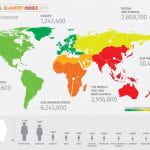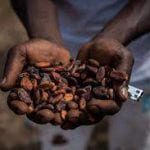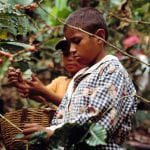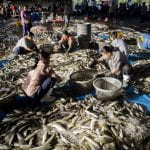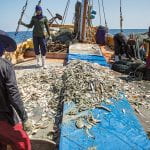
On Thursday, February 24, our group met with Ayn Riggs, the founder and CEO of Slave Free Chocolate, a company that helps bring awareness to how child labor is used in the chocolate industry. This brand was founded in 2007 by Ayn Riggs, Paige Hahn, and Bridget El Khayati. The company has grown a lot since day one as it was originally planned to be a brand that’s only job was to spread the word but since then they have led campaigns and speaking engagements while also helping other similar companies with their own work.
During our talk with Ayn we learned a lot more about her work and against companies that implement child labor and enslaved working in their chocolate making. Some major companies that use these services include Nestle, Hershey, Mars and Cargill. These companies find loopholes in the laws to make use of these inhumane practices. These companies don’t outright encourage child labor but their process of checking their company to see if it is being used is subpar. Although these are some companies are one side of the spectrum, on the other hand some companies are working hard to combat this, like Tony Chocoloney. Or so we thought…
The most interesting part of the interview was when we started discussing Tony Chocolonely. We had heard from other sources that this company was doing a lot to help our cause and that we should consider interviewing one of their representatives so we were surprised when Ayn Riggs told us about how they weren’t who they seemed. Tony Chocoloney was apparently using child labor and enslaved labor behind the scenes. Their chocolate was also from another chocolate company, Barry Callebaut, who is known for treating their workers poorly. How did they get away with this? On their label it tells you that they are working towards 100% slave free chocolate and that they are not their just yet. Lots of people overlook this small detail and that’s why it is easy to miss. All in all, I learned a lot in this interview with Ayn, including how you shouldn’t always believe everything you hear.
